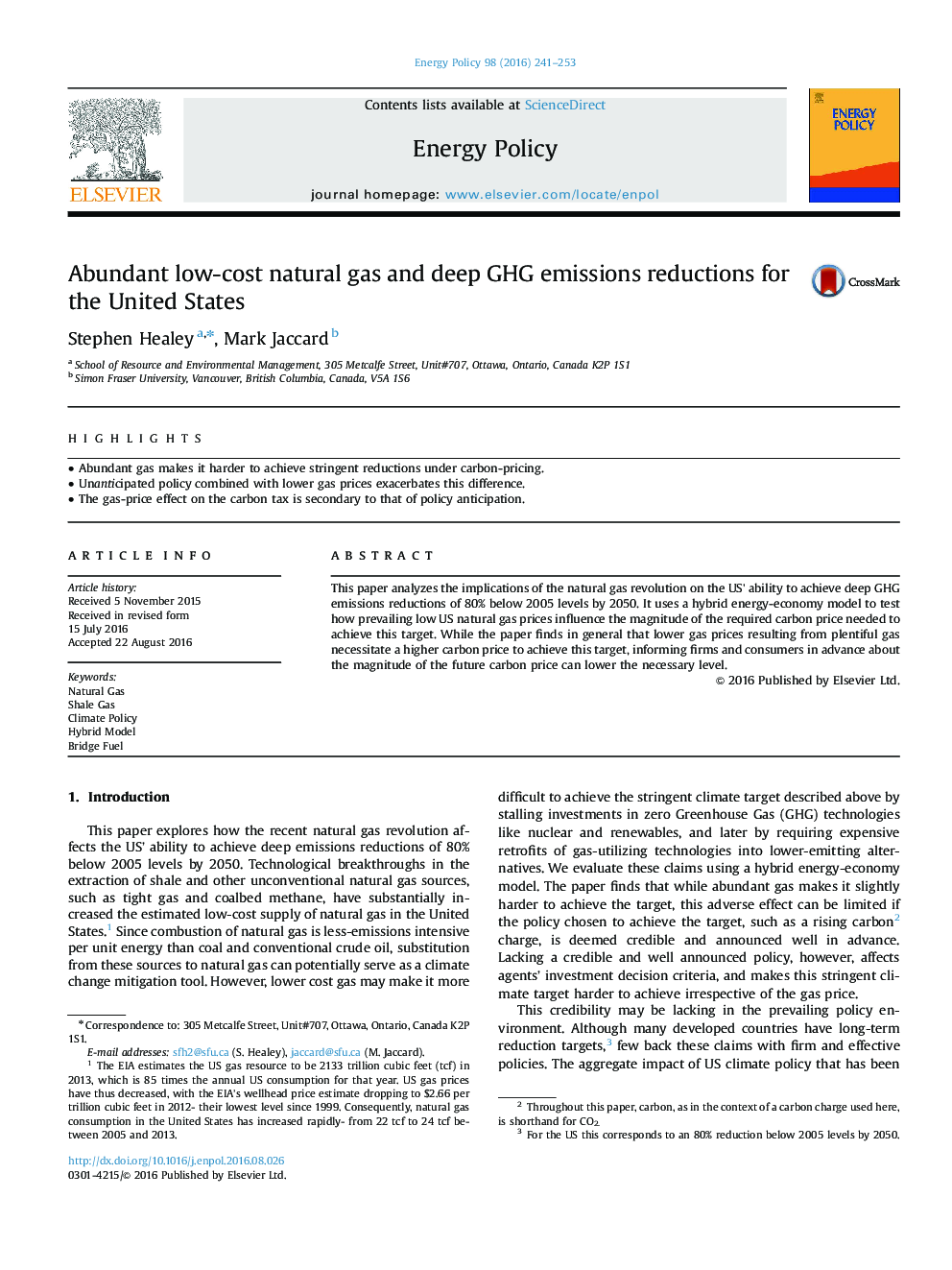| Article ID | Journal | Published Year | Pages | File Type |
|---|---|---|---|---|
| 7398508 | Energy Policy | 2016 | 13 Pages |
Abstract
This paper analyzes the implications of the natural gas revolution on the US' ability to achieve deep GHG emissions reductions of 80% below 2005 levels by 2050. It uses a hybrid energy-economy model to test how prevailing low US natural gas prices influence the magnitude of the required carbon price needed to achieve this target. While the paper finds in general that lower gas prices resulting from plentiful gas necessitate a higher carbon price to achieve this target, informing firms and consumers in advance about the magnitude of the future carbon price can lower the necessary level.
Related Topics
Physical Sciences and Engineering
Energy
Energy Engineering and Power Technology
Authors
Stephen Healey, Mark Jaccard,
